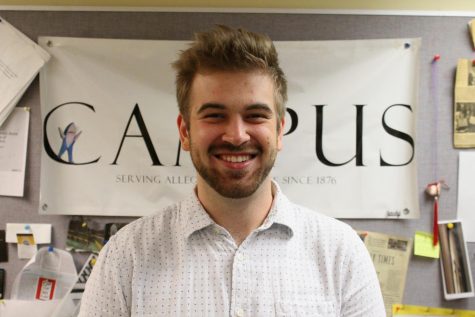University of Pittsburgh hosts Celtic culture webinars
On Oct. 24, the University of Pittsburgh’s International Education department hosted a series of Webinars connected to Celtic culture and their Nationality Rooms Program in the Cathedral of Learning.
Each room is modeled in the style of a school room from their respective nation, with key characteristics explained throughout the presentations.
Three Celtic nations were represented: Ireland, Wales and Scotland. Each room’s respective department had about two hours to present on their nation’s culture, history, modern occurrences and more.
The Irish portion primarily discussed the architecture, saints and farming practices of northern Ireland.
Jack Webber, chair of the Irish Nationality Room at the University of Pittsburgh, presented a slideshow tour of the room and provided a general history of Ireland.
“The earliest timeline of the Celts existing was 2000 (BC),” Webber said during the presentation. “The first Irish in about 500 (BC).”
Webber described the various architectural motifs as Romanesque, as they follow a similar theme of arches and pillars.
In addition to Webber’s slideshow, various videos were presented revolving around history and farming.
One such video came from David Livingston, an Irish farmer. Livingston primarily works with cows and other livestock. After the video, Livingston was present on Zoom to answer questions primarily revolving around COVID-19 and the current state of farming from attendees.
“It’s difficult to work through (the pandemic),” Livingston said. “Milk prices dropped initially, but things are starting to look up and we’re going to get through it.”
The webinar came to a close after a presentation from a student describing the scholarship opportunities for those looking to study away in Ireland.
The Welsh room was the last Celtic room added to the cathedral of learning and the topic of the second webinar, according to Dale Richards, chairman of the Welsh Nationality Room.
Jessica Davies, a Welsh committee member, hosted a virtual tour of the Welsh room, and provided an explanation of the room’s origins.
“If you open the door where the pews are facing, it reveals a blackboard,” Davies said. “And on the right side is actually a pulpit. So this was actually a multipurpose room.”
Davies explained how Welsh as a language was almost killed off during the Tudor’s rule, as it was seen as lesser in comparison to English. Recently it has been on the rise again with 25% of Welsh citizens able to speak fluently.
Committee member Bob Williams then presented a video puppet show of a classic Welsh tale, and both Williams and Davies read Welsh poems. Other videos on quilting and Welsh folk tales were also presented.
Scotland was the last Celtic nation to receive a webinar.
The webinar once more opened with a virtual tour of the Scottish Nationality Room, much like the others. A lecture ensued about Scotland’s clans and clan culture, presented by Paul Thompson, president of the Saint Andrew’s Society of Pittsburgh.
The lecture served as a general history for Scotland and the connections between it and Britain. It also discussed the commonalities between modern day Scottish governing and the clan mentality that dominated the region hundreds of years ago. A Q&A session followed.
Other members of the panel, Jim Hunter and Fiona McGrath, presented poems and sang songs of Scottish origin respectively.
George Balderose played songs on the smallpipes, a type of bagpipe which is played by squeezing a bag of air that sits near your elbow instead of blowing into it. Other songs were played by Sue Borowski on violin.
Also, a brief presentation and recipe for ginger biscuits was provided by Bill McShane.
The program ended with a story fit for the Halloween season and a traditional Scottish toast made by Arthur McAra.

Roman Hladio is a senior from Wexford, Pennsylvania. He is studying English with a creative writing emphasis, and completing requirements for a Journalism...






Arthur McAra • Nov 7, 2020 at 1:07 pm
Is there a link to the Celtic Culture Zoom webinar, especially the Scottish segment?